Govorestat
Govorestat (AT-007) is a next-generation, potent and selective Aldose Reductase Inhibitor (ARI) being developed for the treatment of multiple rare diseases, including Galactosemia, Sorbitol Dehydrogenase (SORD) Deficiency and Phosphomannomutase 2 Deficiency – a Congenital Disorder of Glycosylation (PMM2-CDG). Govorestat is a Central Nervous System (CNS)-penetrant ARI with a highly selective mechanism of action compared to historical ARIs, avoiding off-target effects.
Govorestat has received Orphan Medicinal Product Designation from the European Medicines Agency (EMA) for both Galactosemia and SORD Deficiency. Govorestat has also received Orphan Drug designation from the U.S. Food and Drug Administration (FDA) for the treatment of Galactosemia, SORD Deficiency and PMM2-CDG; Pediatric Rare Disease designation for Galactosemia and PMM2-CDG; and Fast Track designation for Galactosemia.
Galactosemia
Galactosemia is a rare, slowly progressing genetic metabolic disease resulting in an inability to break down the simple sugar, galactose, which is found in foods but is also produced endogenously by the body. The galactose-restricted diet is necessary for survival, but does not prevent long-term complications of disease because the body synthesizes galactose endogenously. The inability to metabolize galactose leads to accumulation of the toxic metabolite, galactitol, leading to long-term damage and neurological complications.
Galactosemia is a lifelong disease requiring chronic treatment with a significant burden on patients, caregivers and families. Galactosemia substantially impacts all areas of daily functioning and quality of life with disease symptoms beginning to appear in early childhood and worsen throughout life. The effects of Galactosemia include:
Behavior and psychiatric symptoms
- Cognition (low IQ, slow processing, memory problems)
- Activities of daily living
- Adaptive skills
- Problems with fine motor skills/tremor
- Seizures
There are approximately 3,300 patients with Galactosemia in the US and 80-100 new births per year, and approximately 4,400 patients with Galactosemia in the EU and approximately 120 new births per year. Newborn screening for Galactosemia is mandatory in the US and most EU countries.
GOVORESTAT FOR THE TREATMENT OF GALACTOSEMIA
Govorestat is a once-daily oral compound that inhibits the enzyme Aldose Reductase. Aldose Reductase plays a crucial role in the pathogenesis of Galactosemia
Govorestat has demonstrated rapid and sustained reductions in galactitol in clinical trials, which resulted in a meaningful benefit on clinical outcomes across pediatric patients, with a favorable safety profile.
In the Phase 3 registrational ACTION-Galactosemia Kids study in children with Galactosemia aged 2-17, treatment with govorestat demonstrated clinical benefit on activities of daily living, behavioral symptoms, cognition, fine motor skills and tremor. Govorestat also significantly reduced plasma galactitol levels in both adults and children with Galactosemia. Additional supportive studies resulted in robust efficacy and safety data across 185 patients with Classic Galactosemia over 3 years. The results of the ACTION-Galactosemia Kids study and the Phase 1/2 ACTION-Galactosemia study in adult patients with Galactosemia were published in the Journal of Clinical Pharmacology.
SORD Deficiency
Sorbitol Dehydrogenase (SORD) Deficiency is a rare, progressive, neuromuscular disease caused by genetic mutations in the sorbitol dehydrogenase enzyme, which is responsible for the metabolism of sorbitol. High toxic sorbitol levels result in neuronal dysfunction and degeneration, leading to axonal neuropathy.
SORD Deficiency results in an increase in tissue and blood sorbitol levels and affects motor neurons, resulting in debilitating complications including:
- Decreased mobility and lower limb function (inability to walk)
- Increased fatigue and pain
- Problems with balance and gait abnormalities
- Upper limb symptoms as disease worsens
SORD Deficiency is one of the most common forms of recessive hereditary neuropathy and affects approximately 3,500-5,000 patients in the US and 4,000 patients in the EU with an average disease onset around the age of 17 years old. Prior to 2020, patients were symptomatically diagnosed as having Charcot-Marie-Tooth Disease Type 2 (CMT2) of unknown genetic cause or distal hereditary motor neuropathy (dHMN). Following a whole genome sequencing initiative in 2020, SORD Deficiency was identified as a subtype of CMT and there is now commercially available sorbitol testing and genetic testing specifically for SORD Deficiency.
GOVORESTAT FOR THE TREATMENT OF SORD DEFICIENCY
Aldose Reductase inhibition addresses the underlying cause of SORD Deficiency by preventing the conversion of glucose to sorbitol
Govorestat has demonstrated significant reductions in sorbitol levels and has been safe and well-tolerated.
In the Phase 3 INSPIRE trial in patients with SORD Deficiency, an interim analysis at 12 months demonstrated a statistically significant reduction in blood sorbitol levels with govorestat treatment as compared to placebo, as well as a statistically significant correlation of sorbitol with change in clinical outcomes, such as 10-meter walk run test, dorsiflexion and 6-minute walk test. Govorestat also demonstrated highly statistically significant effects on the CMT Health Index (CMT-HI) patient reported outcome measure, with benefit of govorestat shown on lower limb function, mobility, fatigue, pain, sensory function, and upper limb function.
PMM2-CDG
Phosphomannomutase 2 deficiency (PMM2-CDG) is the most common congenital disorder of glycosylation, a group of ultra-rare hereditary metabolic disorders, and presents with a range of debilitating systemic and CNS complications. Glycosylation is a process by which sugars are chemically attached to proteins to form glycoproteins, or a group of complex proteins. Protein glycosylation is ubiquitously required in the human body and the loss of PMM2 function has multi-organ systemic effects. As a result of reduced activity of the PMM2 enzyme, patients with PMM2-CDG have imbalances in sugar metabolism pathways, including Aldose Reductase activity.
Patients have a mortality rate of up to 20% in the first 4 years of life with those surviving infancy facing lifelong chronic challenges.
GOVORESTAT FOR THE TREATMENT OF PMM2-CDG
Data in fibroblast cell lines derived from patients with PMM2-CDG demonstrates that govorestat increases PMM2 activity. An Expanded Access Program is available for children with PMM2-CDG.

